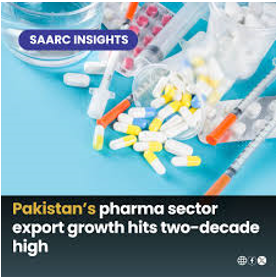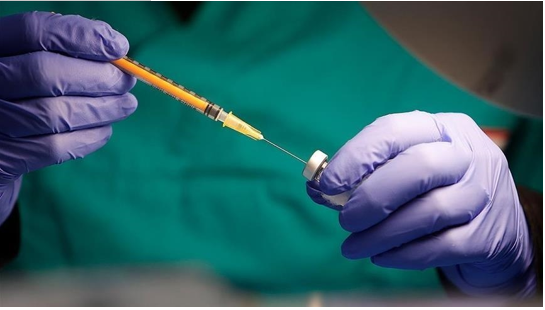INP-WealthPk
Ahmed Khan Malik
Pakistan’s pharmaceutical sector is eyeing substantial export growth during the current financial year to build on the robust 35% growth it posted in the last fiscal.

The country’s total pharma exports stood at approximately $500 million in FY25.
“The industry eyes further increase in exports,” said Tauqeerul Haq, Chairman of Pakistan Pharmaceutical Manufacturers Association (PPMA). “However, a major challenge facing the industry is that 90% of raw materials used for medicine manufacturing are currently being imported, while only 10% are locally available,” he noted.
Talking to Wealth Pakistan, Tauqeer expressed optimism about the future of Pakistan’s pharmaceutical sector. “We are committed to producing high-quality medicines not just for the local population, but also for export to global markets,” he said.

He said that the pharma industry can also produce vaccines if it is supported by the government. The PPMA chairman urged the government to grant early approval to the proposed independent trade body for the pharmaceutical industry, to be named PharmEx, which would focus on resolving industry issues and promoting exports.
He said the Ministry of Commerce had already submitted a summary to the cabinet for the approval of the PharmEx. Tauqeer appreciated Chief Executive Officer of Drug Regulatory Authority of Pakistan Dr Obaidullah for his proactive support and facilitation of the pharma sector. “Previously, we faced significant hurdles in export processes. Now, export registrations are being granted within a week, which is a major step forward,” he said.
“These reforms will help the industry grow and flourish.” One of the key drivers behind this optimism is the rising demand for affordable and quality medicines in developing countries. Many African nations, for instance, rely heavily on imported pharmaceuticals due to limited local production capacity. Pakistan, with its competitive pricing and growing manufacturing capabilities, is well-positioned to tap into this demand.
Similarly, markets in Central Asia and the Middle East are increasingly turning to Pakistan for cost-effective and reliable medicines. However, unlocking this potential requires overcoming several challenges. Regulatory compliance remains at the forefront, said Fawad Najeeb, a pharma expert.
He said for Pakistani companies to gain wider international acceptance, particularly in highly regulated markets like Europe and North America, they must align with international standards such as the World Health Organisation’s Good Manufacturing Practices.
“A handful of firms have already secured certifications from global regulators, but the majority are still in the process of upgrading facilities and systems.” He said that the government had also recognised the need for stronger policy support. “Initiatives to encourage research and development, streamline approval processes, and provide export incentives are being discussed.
Recently, TDAP emphasised the importance of promoting pharmaceutical exports and pledged greater assistance in connecting local companies with foreign buyers. Industry associations, such as PPMA are also lobbying for tax breaks, easier access to credit, and infrastructure improvements,” he explained.
Credit: INP-WealthPk









